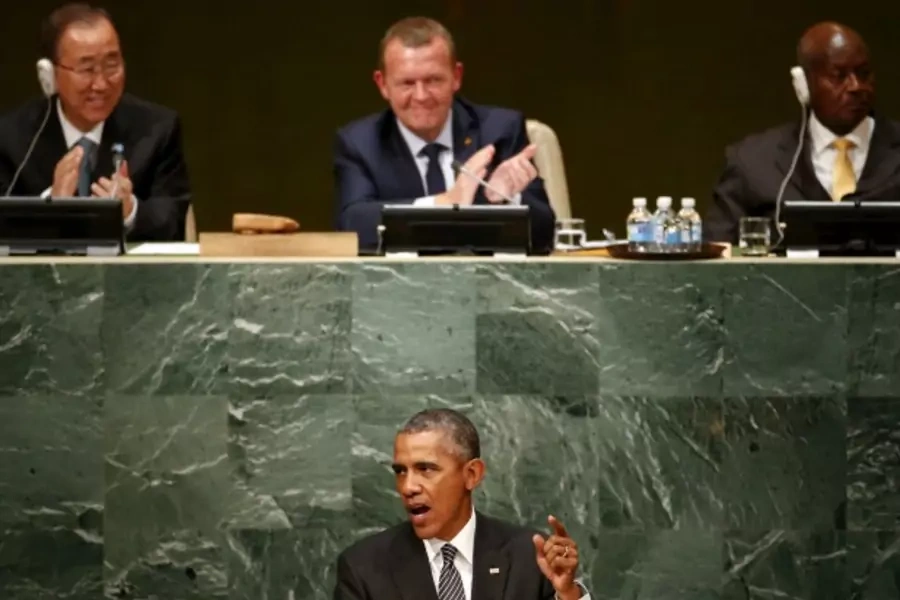This Week in Markets and Democracy: Sustainable Development Goals Adopted

More on:
The biggest achievement of the past week’s United Nations General Assembly (UNGA) in New York was the adoption of a new fifteen-year plan for global development. Replacing the soon-to-expire Millennium Development Goals, seventeen new Sustainable Development Goals (SDGs) will guide UN and domestic development policies through 2030 with an ambitious, and some say overly idealistic agenda. Based on UN member and civil society input over a three-year process, the final set of SDGs aims to eliminate hunger, reduce inequality, promote shared economic growth, and “end poverty in all its forms everywhere.” President Obama, UN Secretary General Ban Ki-moon, and Pope Francis all endorsed the new “global goals” during the three-day UN Sustainable Development Summit held in the run-up to UNGA. Here are two major takeaways from the summit:
The Global Goal of Good Governance
One of the more controversial global goals is SDG 16, which promotes inclusive, accountable institutions and includes twelve specific targets on anti-corruption, representative decision-making, access to information, and the rule of law. With a UN-led global survey of over eight million people ranking governance as a top priority (the second most popular answer in low-income countries), leaders incorporated it into the SDGs despite “adamant resistance.” While many, including U.S. policymakers, support the citizen-led goal, others point to the ambiguity over what “good governance” means, owing to differing perceptions between developed countries and poorer ones. Further, defining and measuring corruption remains difficult, with no standardized cross-country metrics. While polling data propelled governance onto the SDG agenda, citizen participation may also determine whether goal 16’s accountability objectives are achieved.
Financing the Global Goals
The SDGs now set, the development community must find ways to pay for them as costs are estimated to run $3 trillion a year or more. With private capital as a growing funding source—foreign direct investment (FDI) outpaced government-led assistance by about five times last year—the UN and domestic donor agencies embraced multinationals during the summit. A “UN Private Sector Forum” convened business leaders including Unilever’s Paul Polman, Facebook’s Mark Zuckerberg, and MasterCard’s Tim Murphy with German Chancellor Angela Merkel and Oxfam International’s Winne Byanyima to discuss SDG priorities. Many pitched a win-win “business for good” model that stimulates domestic economic growth and cuts poverty while expanding the customer base. Yet others highlighted the limits of private investment—UNGA President Mogens Lykketoft pointed to the failure of big corporations and wealthy individuals to pay taxes. Next week rich countries may advance this conversation with new international rules to govern multinationals.
More on:
 Online Store
Online Store